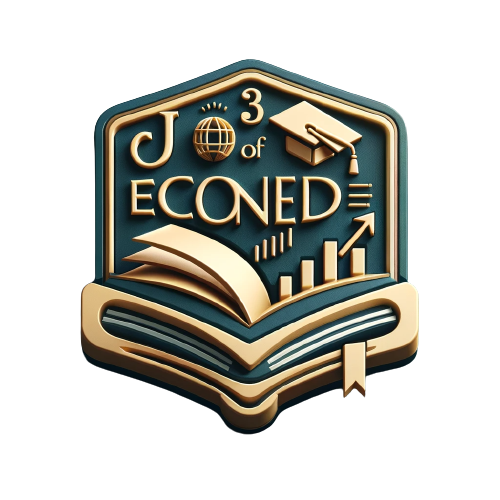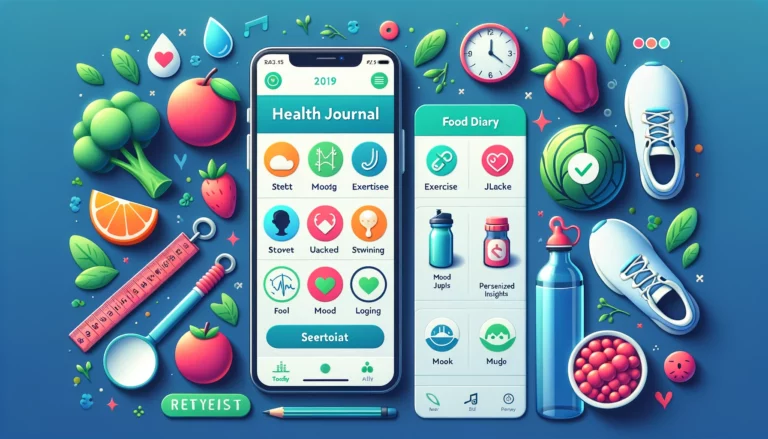Teaching economics resources
The Role of Technology in Modern Economics Education
The infusion of technology into the realm of economics education has completely revolutionized the age-old methods of teaching. Picture this: digital resources—think online platforms, interactive simulations, and a plethora of educational apps—unleash a torrent of innovative tools that educators can wield to captivate students’ attention and deepen their grasp on intricate economic concepts. Suddenly, learning is no longer a one-size-fits-all affair; these technologies gracefully accommodate diverse learning styles, skillfully catering to visual, auditory, and kinesthetic learners alike through vibrant multimedia presentations and engaging interactive exercises.
But wait—it gets even more intriguing! Technology also opens the door wide for real-time data analysis while igniting a spark of critical thinking within students. With access to cutting-edge economic modeling software and sophisticated data visualization tools at their fingertips, educators can unveil current economic trends like never before. This dynamic approach transforms theoretical knowledge into practical experience as students find themselves applying what they’ve learned to tangible real-world scenarios. It’s not just about enriching the academic journey; it’s about equipping students with essential skills for thriving in an increasingly data-driven economy!
Innovative Tools for Interactive Learning
The infusion of cutting-edge tools into the realm of economics education creates a vibrant, dynamic learning atmosphere that captivates students. Imagine digital platforms—interactive simulations and gamified applications—that revolutionize the age-old methods of teaching! These technologies don’t just sit idly by; they thrust students into immersive experiences, where theoretical concepts leap off the page and morph into tangible real-world situations.
And let’s not overlook visualization tools—those dazzling infographics and data dashboards! They unravel complex economic data, transforming it from an intimidating puzzle into something both accessible and comprehensible. It’s like bringing clarity to chaos!
Moreover, online collaborative spaces break down geographical barriers, enabling students to unite on projects as if distance were merely a figment of imagination. These platforms spark communication while inviting an array of perspectives to dance in the problem-solving arena. By harnessing social media and engaging in discussion forums, learners dive headfirst into rich dialogues about economic principles. Such exchanges do more than deepen understanding—they cultivate a thriving sense of community within the classroom walls!
Assessing Student Understanding in Economics
Evaluating how well students grasp economics isn’t just important; it’s absolutely crucial for deciphering the intricate dance of knowledge absorption. Educators must wield a blend of traditional and cutting-edge assessment methods to paint a vivid picture of student learning. Think beyond mere quizzes and exams—imagine formative assessments that deliver real-time feedback, transforming the classroom into an active learning arena!
Peer reviews, group projects, and oral presentations can unveil layers of understanding—both individual insights and collective wisdom bubbling to the surface. And let’s not overlook technology! Integrating digital tools into this evaluative landscape can spark engagement like never before. Picture online platforms brimming with interactive quizzes or gamified assessments that inject excitement into measuring comprehension.
Moreover, analytics tools emerge as secret weapons in the instructor’s arsenal, illuminating patterns in student performance and paving the way for precise interventions. By embracing this eclectic approach to assessment, educators stand poised to ensure their students aren’t just skimming the surface but are diving deep into economic concepts with clarity and confidence!
Effective Evaluation Techniques and Tools
Assessing how well students grasp the nuances of economics demands a tapestry of approaches, each woven to accommodate the kaleidoscope of learning styles. Traditional exams? Sure, they have their place—but why stop there? Alternative assessments burst onto the scene, offering a richer panorama of student understanding. Take project-based assessments, for instance; they invite students to take theoretical concepts off the page and plunge them into real-world contexts—sparking critical thinking like fireworks on the Fourth of July.
And let’s not overlook the digital realm! Online quizzes and interactive platforms spring forth as vibrant tools that captivate students while delivering instant feedback about their grasp on economic principles. It’s like having a conversation with your own brain!
Formative assessments are vital cogs in this educational machine—essential checkpoints along the winding road of learning. By weaving in short quizzes, reflective journals, or peer reviews regularly, instructors can keep their fingers on the pulse of student progress and recalibrate instructional strategies when necessary. Rubrics come into play here too; they lend an air of objectivity while illuminating expectations for students navigating projects and presentations.
So by blending these varied assessment strategies together—a veritable smorgasbord—educators can forge a dynamic evaluation framework that authentically mirrors student learning in economics!
Building a Collaborative Learning Environment in Economics
Encouraging group projects and discussions doesn’t just sprinkle a little teamwork dust over students—it catapults them into the exhilarating realm of critical thinking and collaborative skills. Picture this: learners diving headfirst into dialogue with their peers, dissecting economic concepts from angles they might never have considered alone. It’s like tossing a salad made of diverse perspectives; suddenly, each ingredient enhances the overall flavor! This vibrant interaction doesn’t merely deepen understanding; it sharpens communication skills—a must-have in the ever-evolving world of economics.
But wait, there’s more! Structured group activities don’t simply challenge students to toss around ideas; they compel them to articulate thoughts and defend their viewpoints like warriors in an intellectual arena. Imagine the analytical prowess that blooms when they’re pushed out of their comfort zones!
Now let’s talk about peer feedback—the secret sauce in this collaborative concoction! When students critique one another’s work, it’s not just about pointing out flaws; it’s an enlightening journey through varied problem-solving paths. This practice underscores a vital truth: economics is rarely a solo sport—it’s often played as part of a dynamic team navigating intricate challenges together.
Creating an inclusive atmosphere? Absolutely essential! By inviting every student to contribute, we’re not just enriching the learning experience—we’re sculpting future professionals who are ready to thrive amid collaboration in today’s complex economic landscape. What could be better than that?
Encouraging Group Projects and Discussions
Collaborative learning stands as a pivotal cornerstone in cultivating a profound comprehension of economic concepts. Picture this: students diving into group projects, unraveling the intricacies of real-world economic dilemmas side by side with their peers. This dynamic interplay not only sharpens critical thinking skills but also invites an array of perspectives to surface—each voice adding its own flavor to the discourse. Through vibrant discussions, learners articulate their thoughts with greater clarity and challenge one another’s viewpoints, paving the way for a richer understanding of the material at hand.
But wait, there’s more! Introducing structured group discussions can catapult communication skills to new heights among students. Imagine facilitators deftly steering these dialogues by tossing out open-ended questions like breadcrumbs through a dense forest, guiding students as they collectively navigate complex economic theories and principles. In this lively arena of active learning, participants must listen intently, respond thoughtfully, and build upon each other’s arguments—a veritable dance of ideas! The collaborative essence woven into these projects doesn’t just teach; it equips students for future teamwork in professional environments, highlighting just how relevant their academic journeys are to what lies ahead.
| Group Project Topic | Skills Developed | Expected Outcomes |
|---|---|---|
| Market Analysis | Critical Thinking, Research | Enhanced understanding of supply and demand dynamics |
| Economic Policy Debate | Communication, Persuasion | Improved ability to articulate positions and counterarguments |
| Budget Planning Simulation | Collaboration, Problem Solving | Practical experience in resource allocation and decision-making |
| Global Trade Discussion | Analytical Skills, Teamwork | Deeper insight into international economic relations |
Utilizing Economic Simulations for Enhanced Learning
Economic simulations—what a fascinating, dynamic tool for educators aiming to spark student engagement and deepen comprehension in the vast world of economics! Picture this: students donning the hats of economists, policymakers, and entrepreneurs alike. They immerse themselves in models and scenarios that mirror real-world economic challenges, gaining insights into how myriad factors sway market behavior and decision-making processes.
These simulations come in many forms—from overseeing a virtual enterprise to diving into simulated markets—all providing a safe haven for trial-and-error learning. The beauty of these experiences? Their knack for transforming theoretical concepts into tangible applications. As students navigate this vibrant landscape, they sharpen their analytical skills by evaluating different strategies’ outcomes in real-time.
But wait—there’s more! The collaborative nature woven throughout many simulations fosters an atmosphere ripe for teamwork. It’s here that communication flourishes alongside critical thinking among peers. By wrestling with intricate economic situations, learners not only enhance their grasp of fundamental principles but also nurture a profound sense of responsibility and ethical awareness as they make economic decisions. What an exhilarating way to learn!
The Impact of Simulation Games on Student Engagement
Simulation games have burst onto the scene as a formidable force in economics education, wielding an uncanny ability to mirror the messy intricacies of real-world scenarios. These interactive escapades invite students to dive headfirst into decision-making whirlpools, watching with bated breath as their choices ripple through a carefully curated environment. By immersing themselves in simulated markets or economic conundrums, learners not only hone critical thinking skills but also unravel the tangled threads of complex economic concepts that often elude simpler explanations. This hands-on methodology transforms abstract theories into something palpably real, boosting students’ capacity to absorb and retain knowledge.
The lively essence of simulation games ignites active participation, turning learning into an exhilarating adventure while simultaneously ramping up effectiveness. Students join forces with peers in collaborative ventures that sharpen teamwork and communication skills—vital tools in any economist’s toolkit. Moreover, these digital experiences frequently dovetail seamlessly with curriculum goals, offering immediate feedback on performance like a guiding compass amid turbulent seas. As learners navigate challenges and grapple with decision-making dilemmas, they cultivate confidence in their economic reasoning—a spark that fuels heightened motivation and deepens interest in the vibrant world of economics.
- Simulation games enhance critical thinking by requiring students to make complex decisions in real-time.
- They provide a safe environment for experimenting with economic theories without real-world consequences.
- Collaboration in team-based simulations fosters essential teamwork and interpersonal skills.
- Immediate feedback helps students identify areas for improvement and reinforces learning objectives.
- Engaging in simulations increases intrinsic motivation by making the learning process dynamic and enjoyable.
- The visual and interactive nature of these games caters to diverse learning styles, enriching the educational experience.
- By connecting theory to practice, simulation games encourage a deeper understanding of economic principles.
Professional Development Opportunities for Economics Educators
Diving into the world of professional development is absolutely vital for those teaching economics, especially if they’re eager to elevate their instructional game and stay in sync with the ever-evolving landscape of the discipline. Picture this: workshops and training sessions brimming with pedagogical techniques that unveil a treasure trove of cutting-edge teaching methodologies! These gatherings often morph into collaborative havens where educators trade stories, share best practices, and glean wisdom from each other’s journeys.
But wait—there’s more! Numerous professional organizations roll out courses that spotlight the crucial integration of technology within the economics curriculum. This approach not only sharpens educators’ skills but also empowers them to craft vibrant learning atmospheres that captivate students’ minds.
Now let’s talk about conferences specifically tailored for economics education. They don’t merely act as networking hubs; they transform into fertile grounds for professional growth. Attending these events offers educators a front-row seat to insights from leading scholars and practitioners who delve into hot-button topics and groundbreaking research in economics. And it doesn’t stop there! Many sessions are dedicated to honing in on how well students grasp concepts while fine-tuning instructional strategies designed to spark deeper engagement.
By immersing themselves in such rich professional development experiences, educators stand poised to amplify their effectiveness in teaching—and play an instrumental role in propelling forward the field of economics education as a whole.
Workshops and Conferences to Enhance Teaching Skills
Educators in the realm of economics unlock a treasure trove of benefits when they immerse themselves in workshops and conferences that spotlight innovative teaching strategies and instructional techniques. These vibrant gatherings serve as a bustling marketplace of ideas, where educators can rub elbows with field experts, swap insights like cards, and delve into the latest trends reshaping economics education. Imagine participants diving headfirst into discussions about cutting-edge pedagogical approaches, seamless tech integration, and curriculum designs that echo current research while satisfying industry demands.
But it doesn’t stop there! Many workshops are not just lecture halls; they transform into interactive playgrounds filled with hands-on experiences and practical tools ready to be wielded right in the classroom. Teachers might stumble upon fresh resources crafted for diverse learning landscapes—tools that supercharge their ability to captivate students’ attention. This continuous professional development isn’t merely a personal journey; it’s an investment that elevates the entire quality of economics education itself. By dedicating precious time to these enriching opportunities, educators can cultivate an electrifying atmosphere for learning—a space where students thrive amidst engagement and creativity!
Conclusion
The landscape of economics education has undergone a seismic shift, thanks to the infusion of contemporary resources and techniques. Imagine this: educators harnessing cutting-edge technology to craft immersive and captivating learning experiences that dive deep into the intricate labyrinth of economic concepts. These innovative tools do more than merely complement the traditional curriculum; they ignite a spark that encourages students to leap into their own educational odyssey—arming them with the knowledge and skills they’ll need to tackle future challenges head-on.
But wait, there’s more! The lifeblood of effective teaching lies in professional development—a non-negotiable for educators aiming to navigate the ever-evolving seas of instructional methodologies and advancements within their field. Workshops, conferences—they’re not just events; they’re treasure troves brimming with best practices waiting to be uncovered and collaborative strategies eager for exploration. As economics bends and sways in response to an increasingly volatile world, pouring continuous investment into teaching resources coupled with robust educator training isn’t just beneficial; it’s essential for elevating educational quality and igniting student engagement across all disciplines.







